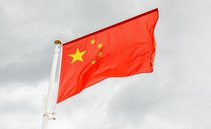China is desperate to make its economy competitive again, going as far as taking on unprecedented levels of debt.

China’s government started a massive sale of ultra-long-term state bonds in an effort to boost internal demand and subsidize growth. Two Chinese brokers spoke with the Financial Times, saying they received requests for advice for pricing the first batch of bonds.
The People’s Bank of China will sell off 1 trillion yuan (140 billion USD) as announced in the annual March session. Liu Sushe, deputy head of the National Development and Reform Commission, said the bond sale is a crucial part of the “concerted efforts to support significant, urgent and challenging projects that are essential for the modernization of the economy.”
The bonds will have 30, and sometimes 50 years of maturity. This is needed to pose a lighter burden on local administration, which is currently experiencing a high-debt crisis.
However, according to Hong Kong director at CSPI Credit Rating Jameson Zuo, the Chinese government still has a lot of leeway before debt spirals out of control. “China still has significant room, potentially trillions of yuan worth of bond issuance over the next five to 10 years, to let the central government take up more leverage and boost investments,” Zuo told the Financial Times.
leggi anche
China and its 5 economic recovery dilemmas

Boosting the economy
The Chinese government has been aiming at a complete financial restructuring for months. China is currently suffering from a strong deflationary wave, with April’s inflation measured at 0.3% year-on-year.
China’s deflation was combined with low exports and imports (except for a temporary rebound in January-February), which halted the country’s post-COVID recovery. At the start of the year, the Chinese government posted a 5% GDP growth goal for 2024, with many analysts skeptical they could actually reach it.
The Asian giant is also currently battling its worst real estate crisis to date, which caused the ballooning local debt mentioned above. The Chinese real estate market was fueled by decades of price speculation, which eventually collapsed in on itself, leaving investors (including local governments) with nothing to show for it.
The central party believes artificial investments in the economy are needed to make China competitive once again.
Meanwhile, the Chinese government continues with its massive investments in new markets, including lithium-ion batteries and electric vehicles (EVs). Last year, China became the world’s largest EV producer, scaring Western markets about its overproduction.
The long-term bond issue plan will work as long as interest rates remain low enough. If a bank holds too many long-term bonds, its assets may collapse in the case of abrupt interest rate hikes. This is exactly what happened to Silicon Valley Bank when it collapsed last year after the US Federal Reserve brought interest rates to a 20-year high.




